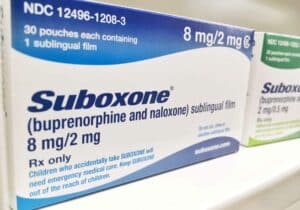In the United States, adolescent drug addiction stands as a critical and alarming concern, posing considerable challenges to communities, schools, and families. The National Institute on Drug Abuse (NIDA) reports that by the time they reach the end of high school, roughly 50% of adolescents have tried an illicit drug. Marijuana is the predominant drug of choice among this age group, but prescription medications aren’t far behind, trailed by substances such as cocaine, hallucinogens, and ecstasy. The recent surge in opioid misuse and the rising trend of vaping have further complicated the landscape of adolescent drug addiction. These statistics emphasize the urgent need for early intervention and robust educational efforts to stem the growing wave of drug addiction in young individuals.
Parenting a teen can be a challenge, with mood swings and changing behaviors often dismissed as typical teenage angst. However, some behaviors may point to a more serious issue, such as drug use. Recognizing the signs of drug use early can make a significant difference in getting your teen the help they need.
Warning Signs of Adolescent Drug Use
The teenage years can be a tumultuous time filled with rapid physical, emotional, and psychological changes. As such, it’s critical for parents and guardians to recognize the difference between typical teenage behaviors and potential warning signs of drug use. Identifying these signs early can lead to timely intervention and prevent further harm.
Physical Changes:
- Bloodshot Eyes: This can be an indication of recent drug use, especially marijuana. Pay attention if this is a frequent occurrence.
- Dilated or Constricted Pupils: Drugs such as opioids can cause pupils to become smaller, whereas stimulants or hallucinogens can lead to larger pupils.
- Sudden Weight Fluctuations: Rapid weight loss might indicate stimulant use, while weight gain could point towards marijuana use.
- Altered Sleep and Appetite: Insomnia might suggest stimulant use, while increased sleep can be linked to marijuana or opioids.
- Unusual Odors: The smell of drugs like marijuana is distinct. However, other drugs might also leave peculiar scents on clothing or breath.
Behavioral Indicators:
- Changing Friend Groups: While it’s normal for teens to form new friendships, a sudden change in their social circle could be a red flag, especially if the new friends are known drug users.
- Academic Decline: A sudden drop in grades or frequent truancy might indicate a potential substance issue.
- Loss of Passion: If hobbies or activities they once loved are now ignored, it might suggest a shifting focus, possibly towards drug use.
- Secrecy and Avoidance: Becoming unusually private, especially about their activities and whereabouts, or avoiding family interactions can be a concerning sign.
- Theft or Missing Items: Drug habits can be expensive. If money or valuables start disappearing, it could be to fund their habit.
Psychological Signs:
- Mood Swings: While teens are known for their emotional fluctuations, extreme mood changes, especially aggression, might be a result of drug use.
- Unwarranted Paranoia: If they seem unusually fearful, anxious, or paranoid without an apparent reason, it could be linked to drug-induced paranoia or anxiety.
- Energy Level Fluctuations: Sudden bouts of hyperactivity might suggest stimulant use, while lethargy could point to depressants or opioids.
- Lack of Motivation: A pervasive sense of apathy or lack of motivation, especially towards activities they once loved, can be a significant warning sign.
Some of these symptoms might also correspond with regular adolescent behaviors, a combination of these signs might indicate a deeper issue related to drug abuse. If you suspect an issue, it’s crucial to approach your adolescent with understanding and empathy, and to seek professional help when necessary. Remember, early intervention with the right support, like the programs offered at Iris Wellness Group, can make all the difference in ensuring a healthier future for your teen.
Signs and Symptoms of Adolescent Drug Addiction
Recognizing the signs and symptoms of adolescent drug addiction can be tricky as many of these symptoms often overlap with typical adolescent behaviors. However, some indicative symptoms are:
- Neglect of personal hygiene.
- Increased need for privacy; locking doors or avoiding eye contact.
- Frequent use of perfumes, incense, or air fresheners (to hide the smell of drugs).
- Use of eye drops to mask red eyes and dilated pupils.
- Sudden use of chewing gum or mints to cover up breath.
- Clothing or jewelry promoting drug use.
Dual Diagnosis Treatment for Adolescent Drug Addiction
When adolescents develop substance abuse problems, they often have co-existing mental health issues, such as anxiety, depression, or ADHD. This is termed a dual diagnosis. Treating only the substance abuse or only the mental health condition is less effective, as one often influences the other. Comprehensive treatment that addresses both issues concurrently is vital for a successful recovery.
Types of Treatment for Adolescent Drug Abuse
When you identify that your teen might be struggling with drug abuse, seeking immediate treatment is crucial. Here are the available treatments:
- Inpatient Rehabilitation: This is a structured environment where teens stay at a facility. They receive a combination of individual and group therapies, along with medical care.
- Outpatient Programs: These treatments allow teens to stay at home while attending sessions at a facility. The intensity and frequency depend on the individual’s needs.
- Adolescent Intensive Outpatient Program (IOP): Specifically tailored for adolescents, IOPs offer more intensive treatments than regular outpatient programs but don’t require hospitalization. Adolescents attend sessions during the evenings, three times a week, allowing them to continue with school or work during the day. This approach offers a balance, addressing the drug abuse issue while allowing them to maintain some normalcy in their daily routines. IOPs focus on both individual and group therapies, addressing the root causes of drug use and teaching coping mechanisms.
- Family Therapy: As the family unit is integral in an adolescent’s life, involving them in the therapy can be beneficial. This approach can repair relationships and ensure a supportive environment at home.
- Behavioral Therapies: These therapies help teens modify their attitudes and behaviors related to drug use. They also increase their life skills to handle stressful circumstances and environmental cues that may trigger intense craving for drugs.
- Cognitive Behavioral Therapy (CBT): This therapy is instrumental in helping teens recognize, avoid, and cope with situations in which they are most likely to use drugs.
Get Help For Your Adolescent Today
Identifying signs of drug abuse in your teen can be alarming, but early action is pivotal for effective recovery. Understanding the warning indicators and available treatments equips you to act decisively for your adolescent. Remember, the path to healing involves a joint effort between the teen, family, and professionals. If you believe your teen faces challenges, promptly turn to Iris Wellness Group. With our specialized adolescent IOP treatment, the road to recovery is always within reach with the right guidance and care.










